I think I have figured out the identity of the mystery tree with the enormous roots and reddish compound leaves that towers over the other trees by our parking space.
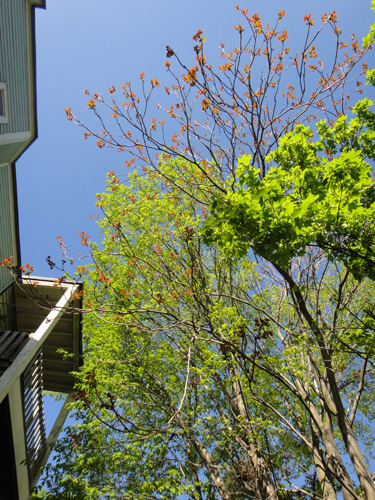
It turns out to be an Ailanthus tree (or Tree of Heaven). We looked at a twig from this type of tree in my science class (the class that got me started writing this blog). Our instructor described it as a "kindergarten tree," because all of its features are very large, making it easy to observe the typical characteristics of a twig. Look at those enormous leaf scars!
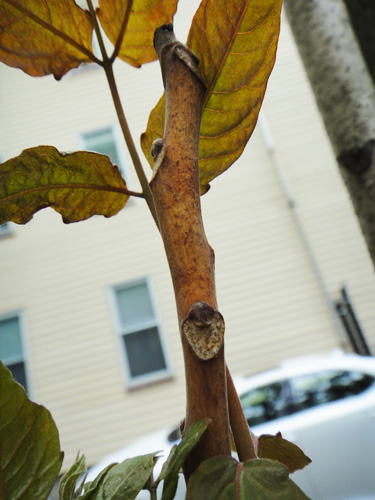
I had noticed this skinny Ailanthus twig growing near our parking spot between the tree with the nest in it and the one with the enormous roots. But it wasn't until I recognized that the leaves on that twig were the same as those on the tall tree with the enormous roots, that I realized that the larger tree must also be an Ailanthus tree.
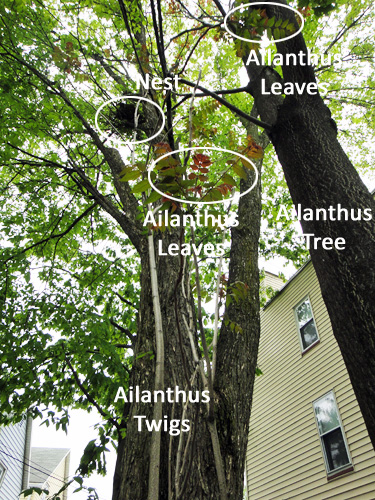
In fact, I think the smaller twigs may really just be suckers from the larger tree. Tree suckers are also called basal shoots (as if anyone would choose to use that term over sucker!) and are new shoots that develop from the base of a tree. And sure enough, that's just where these twigs are coming from.
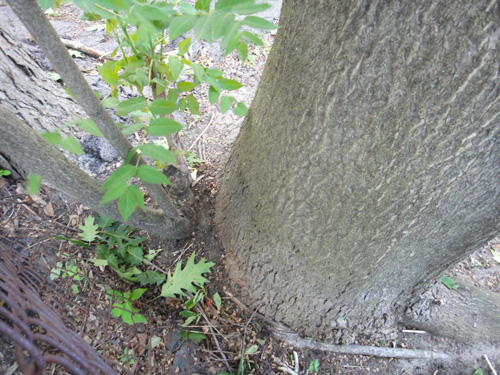
These suckers can grow to become entire new trees, sometimes even competing with the original tree for nutrients and light (although often a tree will produce suckers when the main tree is damaged, sort of as a replacement).
Now, Ailanthus is kind of known as a weed tree. It likes to take over an area, both below (with large roots, as we've seen) and above (by growing taller than its surrounding trees and blocking their sunlight - hmmm, seen that too). Suckers are another way that this tree can take over. The wikipedia description reads like a observation of my tree: "suckers that can damage pavements" - check; "capable of forming thick blankets of roots" - check; "the male flowers have a strong odour [which] tends to resemble the smell of strong cat urine or the spray of a male cat" - oh my, is that what I smell in the car sometimes on particularly pollen-y days? That's from that tree?!
So I'm convinced, but a check on my favorite site, What Tree is It?, confirms my identification.

Lookie, there: funny bumps at the bottom of each leaf.
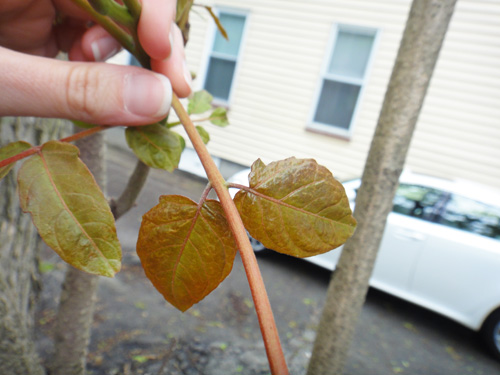
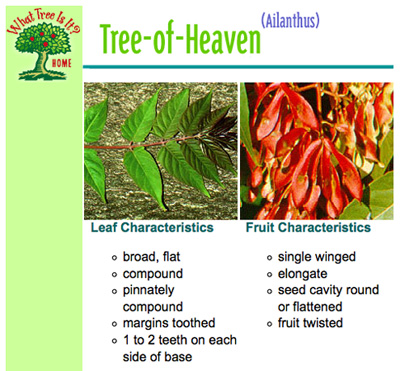
And broad, flat, pinnately compound...uh, what that said...leaves!
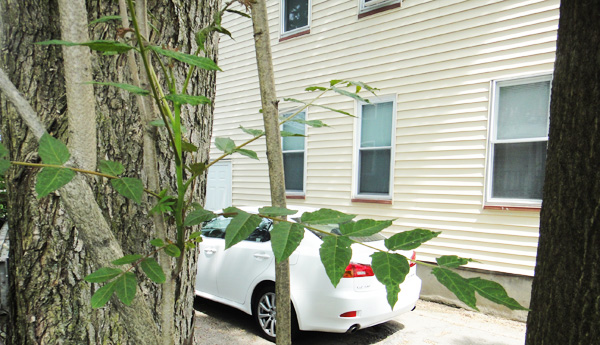

It turns out to be an Ailanthus tree (or Tree of Heaven). We looked at a twig from this type of tree in my science class (the class that got me started writing this blog). Our instructor described it as a "kindergarten tree," because all of its features are very large, making it easy to observe the typical characteristics of a twig. Look at those enormous leaf scars!

I had noticed this skinny Ailanthus twig growing near our parking spot between the tree with the nest in it and the one with the enormous roots. But it wasn't until I recognized that the leaves on that twig were the same as those on the tall tree with the enormous roots, that I realized that the larger tree must also be an Ailanthus tree.

In fact, I think the smaller twigs may really just be suckers from the larger tree. Tree suckers are also called basal shoots (as if anyone would choose to use that term over sucker!) and are new shoots that develop from the base of a tree. And sure enough, that's just where these twigs are coming from.

These suckers can grow to become entire new trees, sometimes even competing with the original tree for nutrients and light (although often a tree will produce suckers when the main tree is damaged, sort of as a replacement).
Now, Ailanthus is kind of known as a weed tree. It likes to take over an area, both below (with large roots, as we've seen) and above (by growing taller than its surrounding trees and blocking their sunlight - hmmm, seen that too). Suckers are another way that this tree can take over. The wikipedia description reads like a observation of my tree: "suckers that can damage pavements" - check; "capable of forming thick blankets of roots" - check; "the male flowers have a strong odour [which] tends to resemble the smell of strong cat urine or the spray of a male cat" - oh my, is that what I smell in the car sometimes on particularly pollen-y days? That's from that tree?!
So I'm convinced, but a check on my favorite site, What Tree is It?, confirms my identification.

Lookie, there: funny bumps at the bottom of each leaf.


And broad, flat, pinnately compound...uh, what that said...leaves!

Cool.
By the way, the tree behind the Ailanthus suckers - the one with the nest - appears to be some sort of chestnut. I'm not swearing to that just yet, but the leaf is a good indicator. I'll leave it to you to check this one...
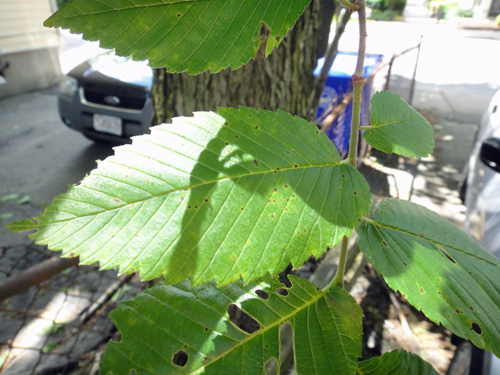
By the way, the tree behind the Ailanthus suckers - the one with the nest - appears to be some sort of chestnut. I'm not swearing to that just yet, but the leaf is a good indicator. I'll leave it to you to check this one...

